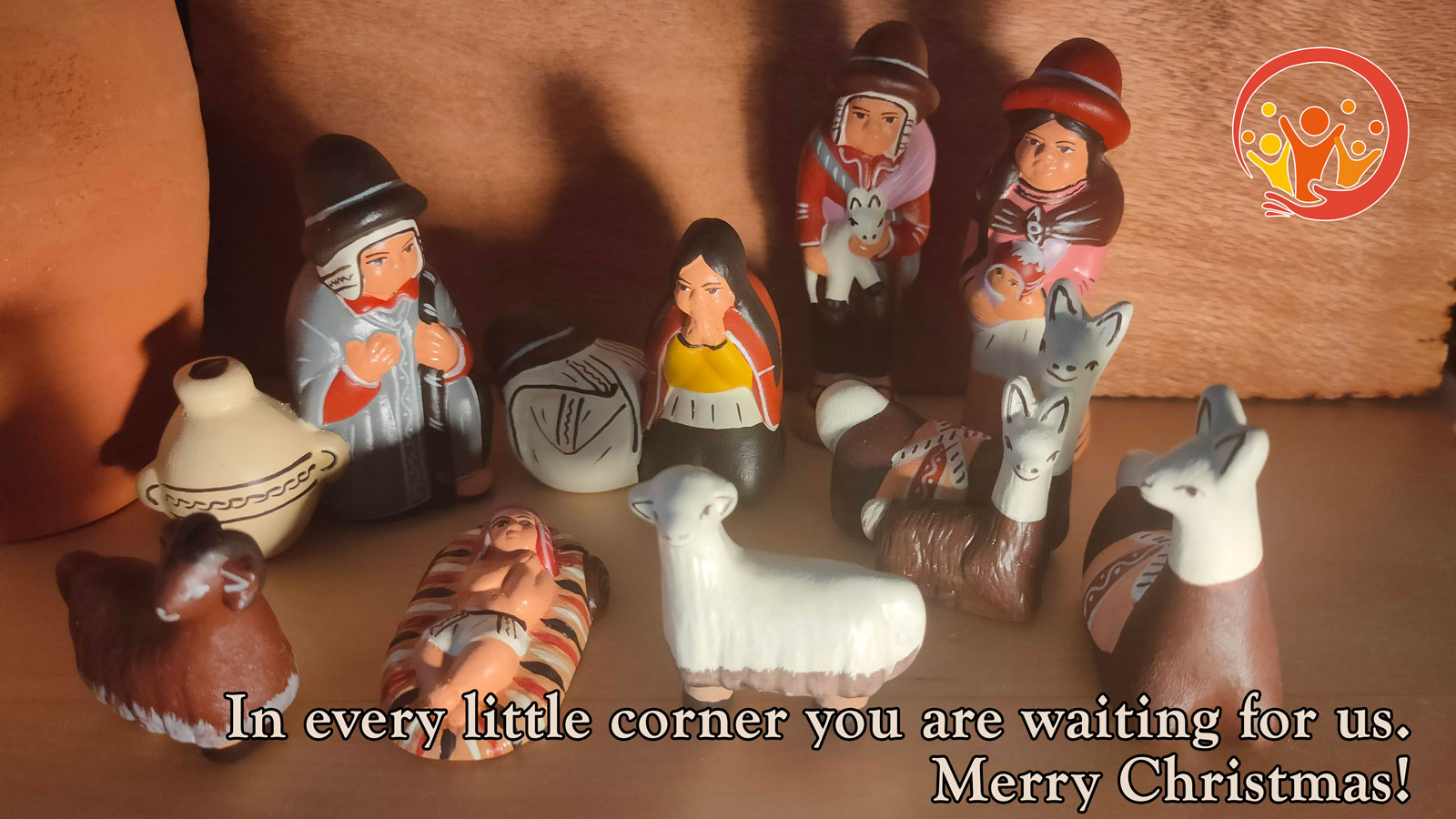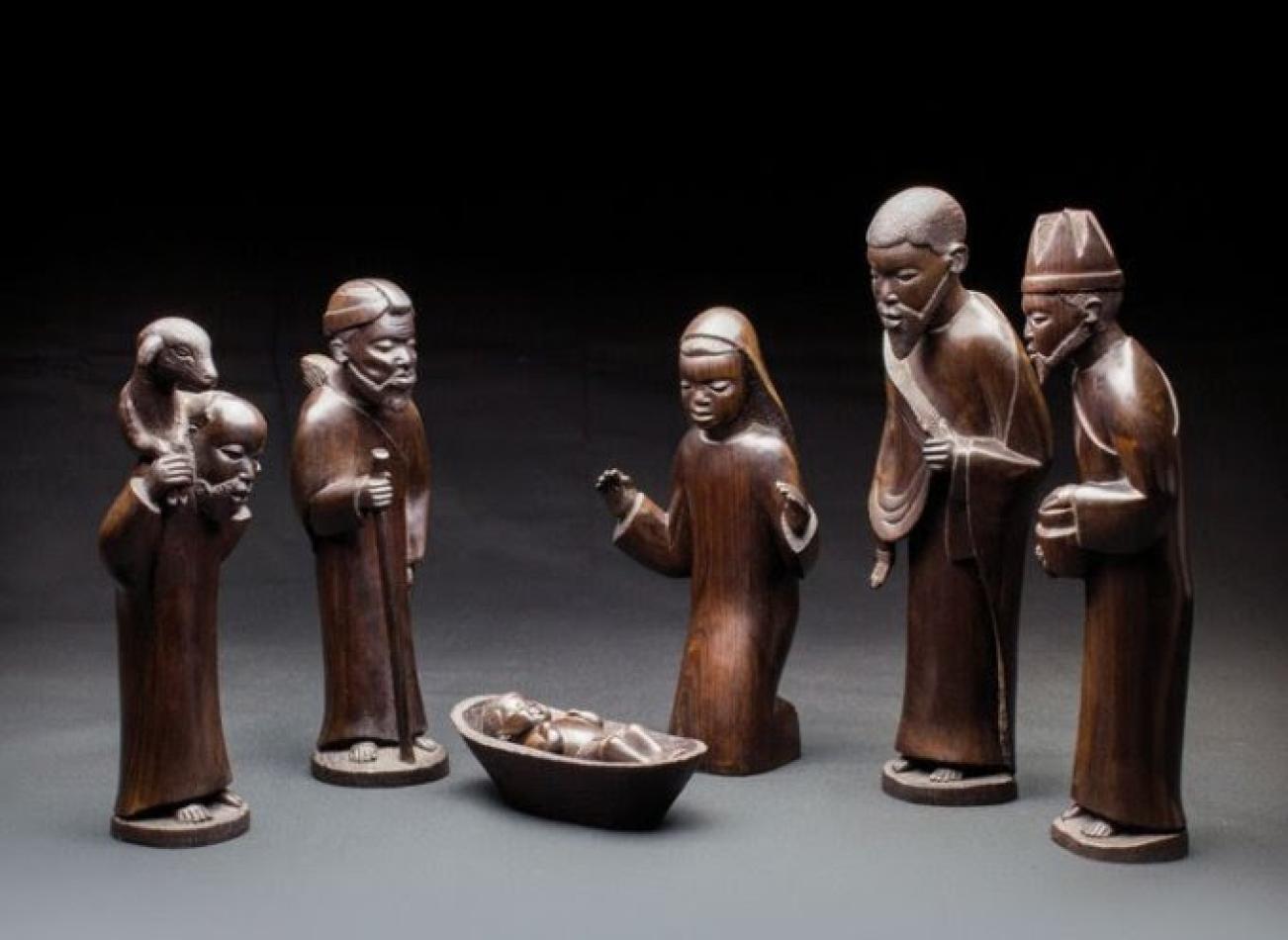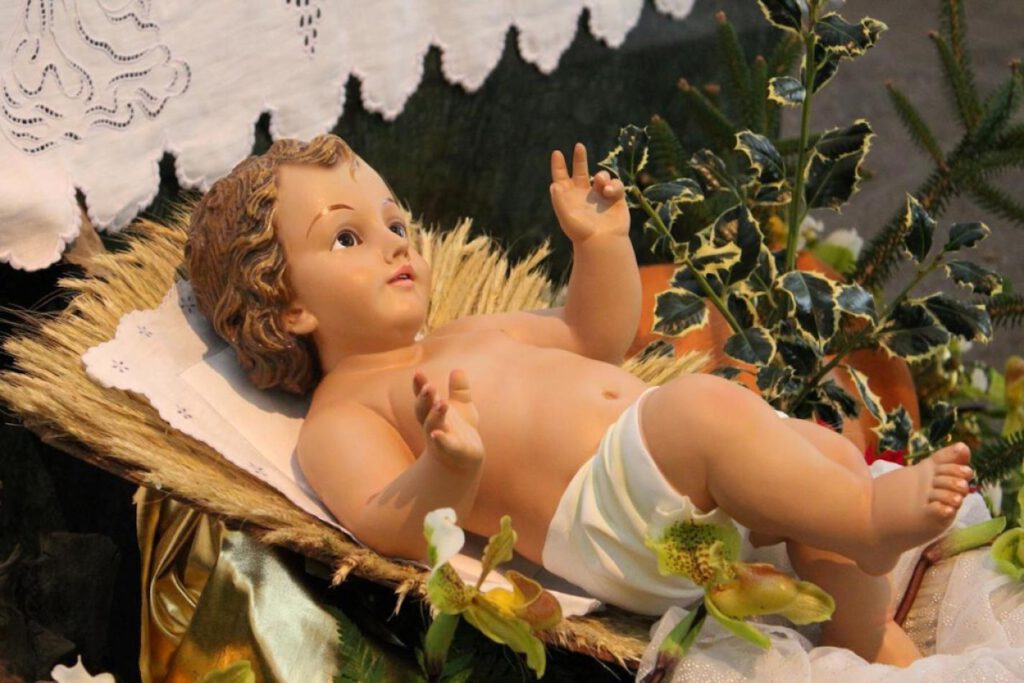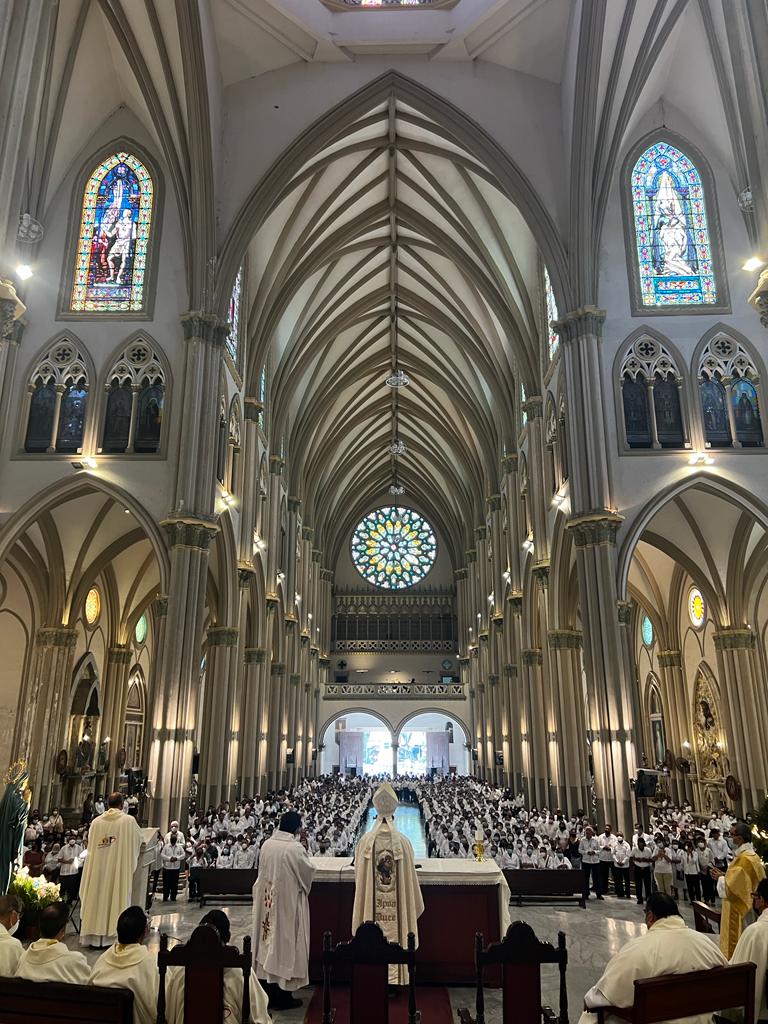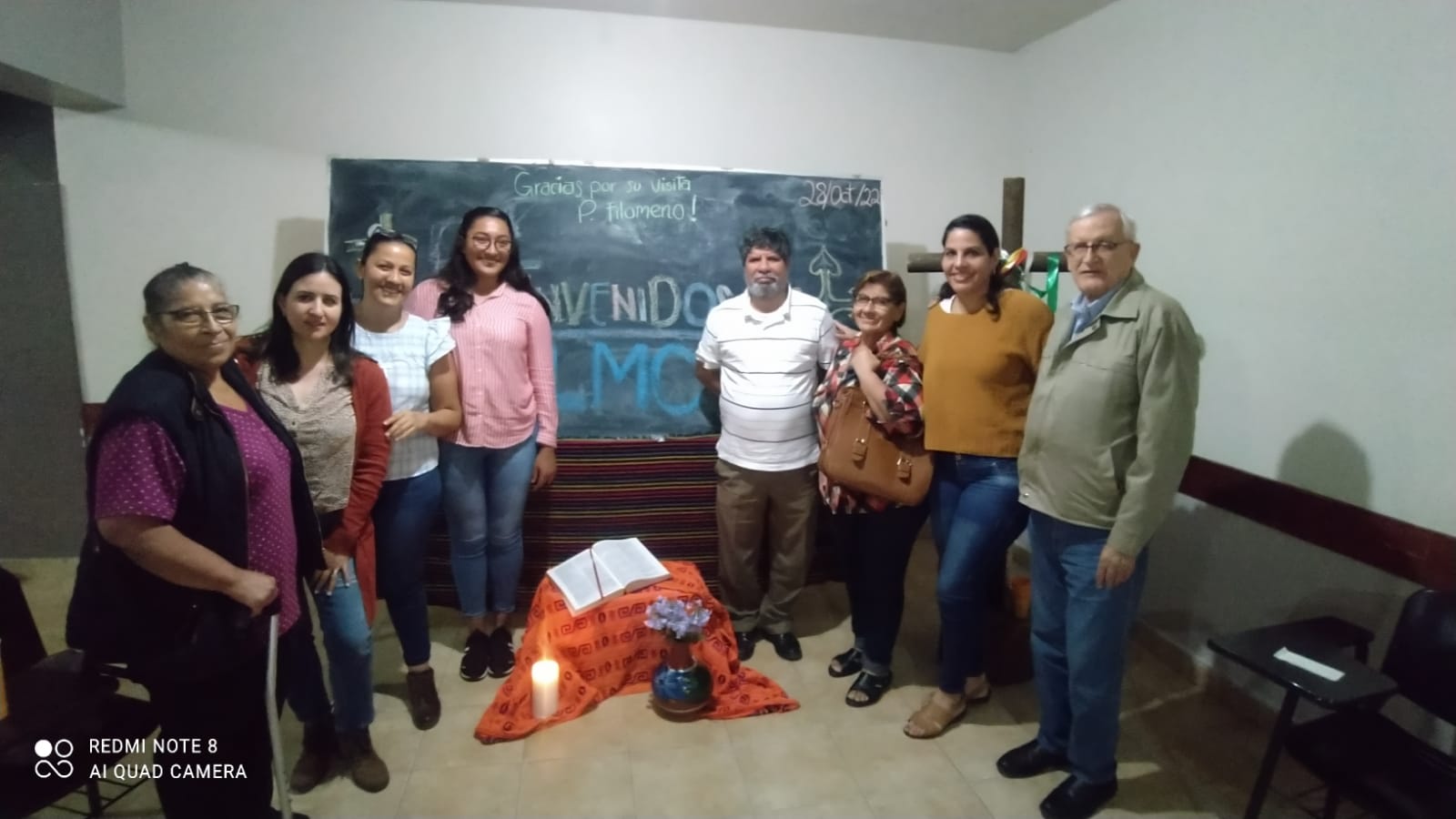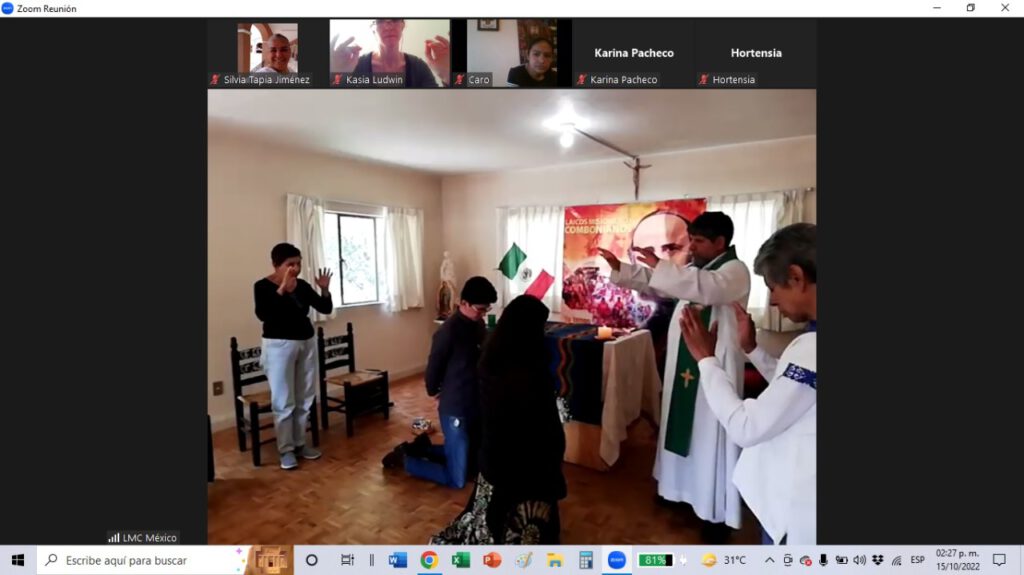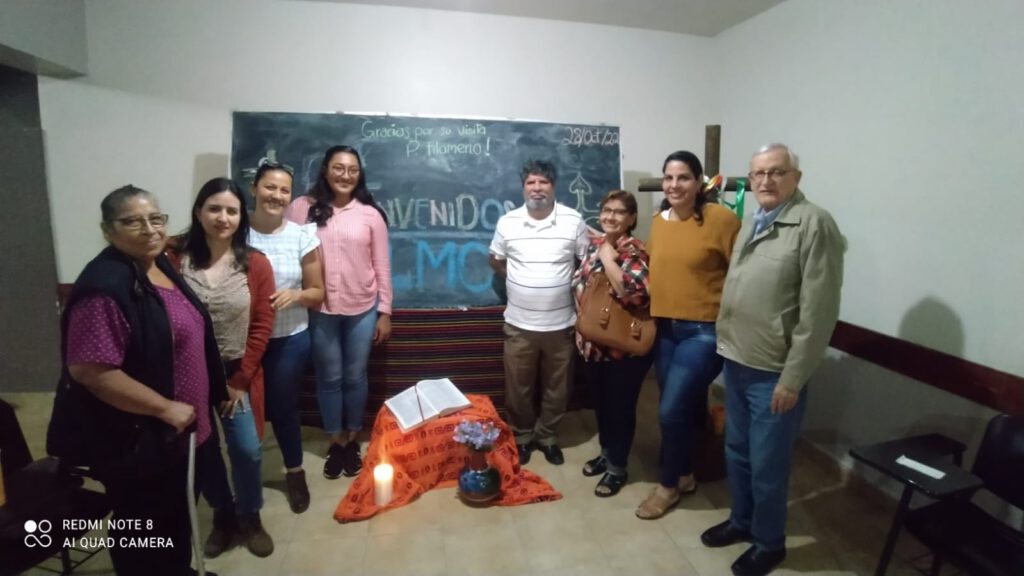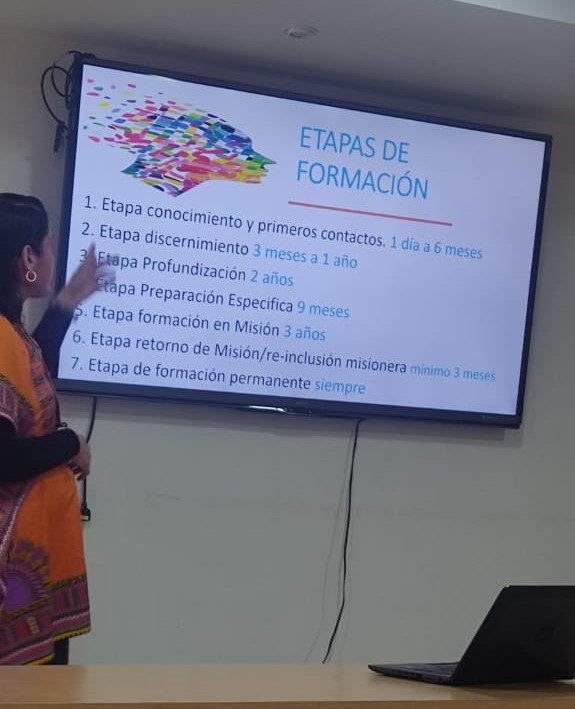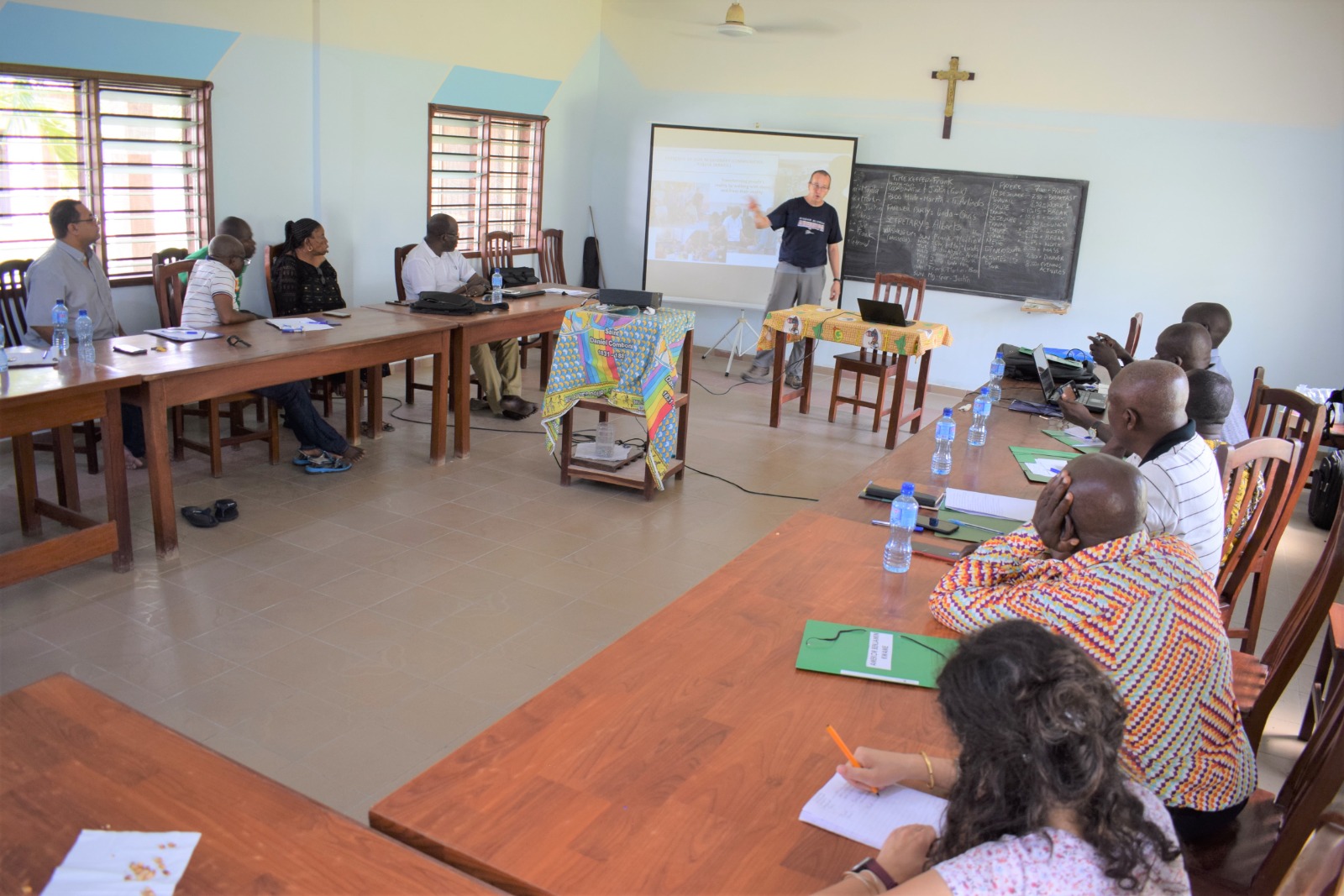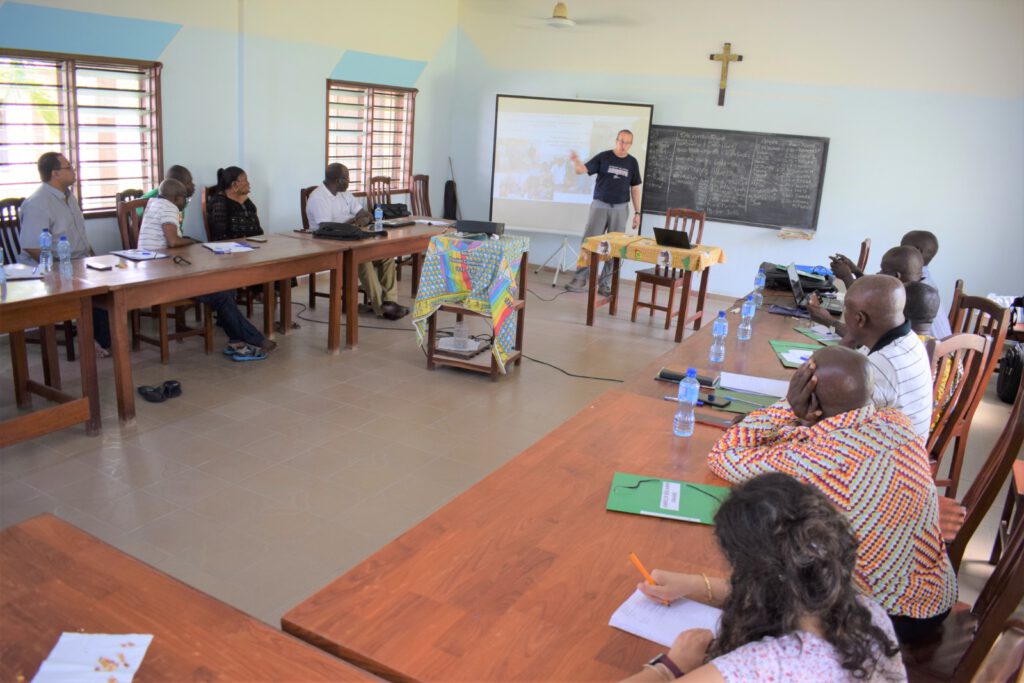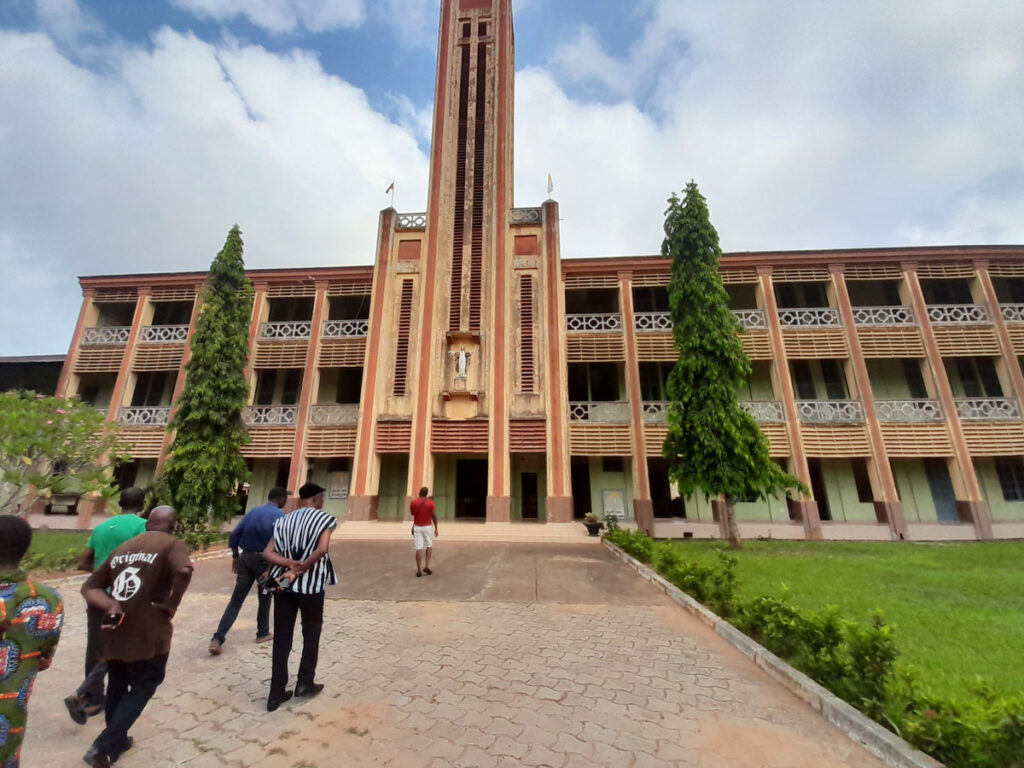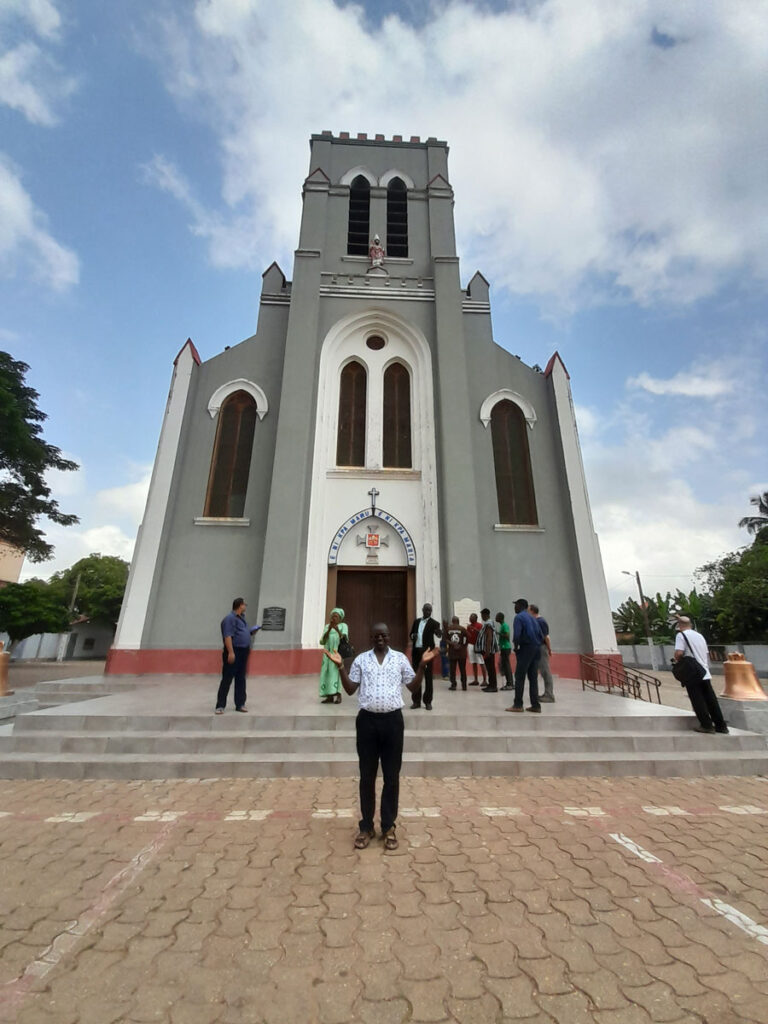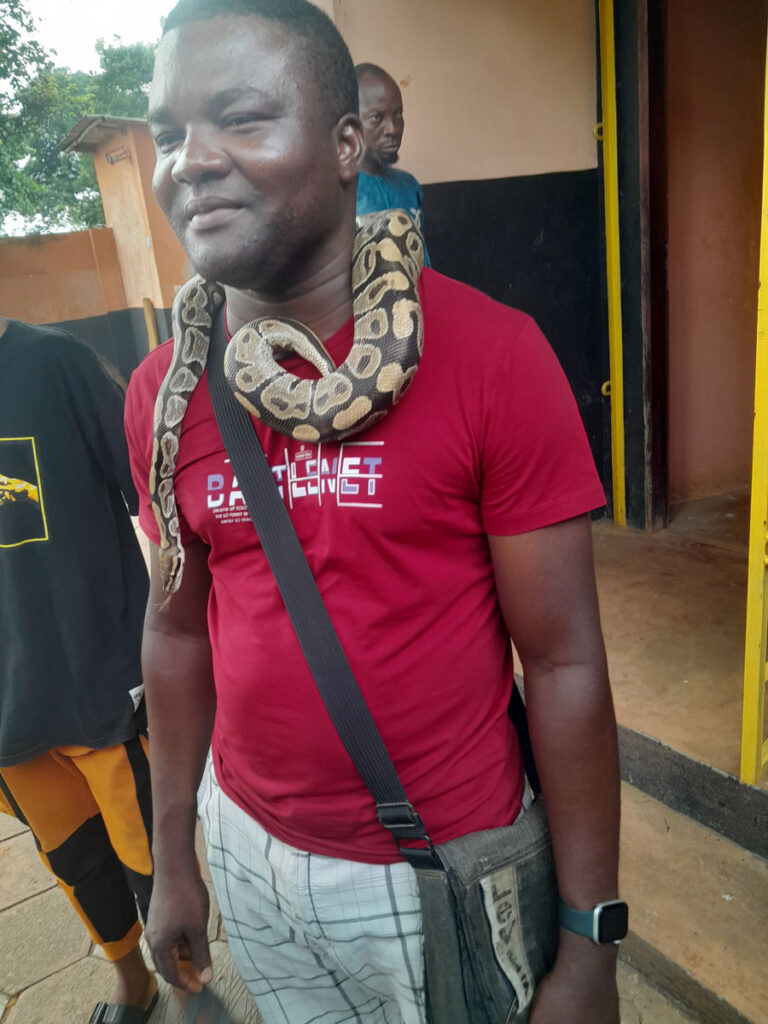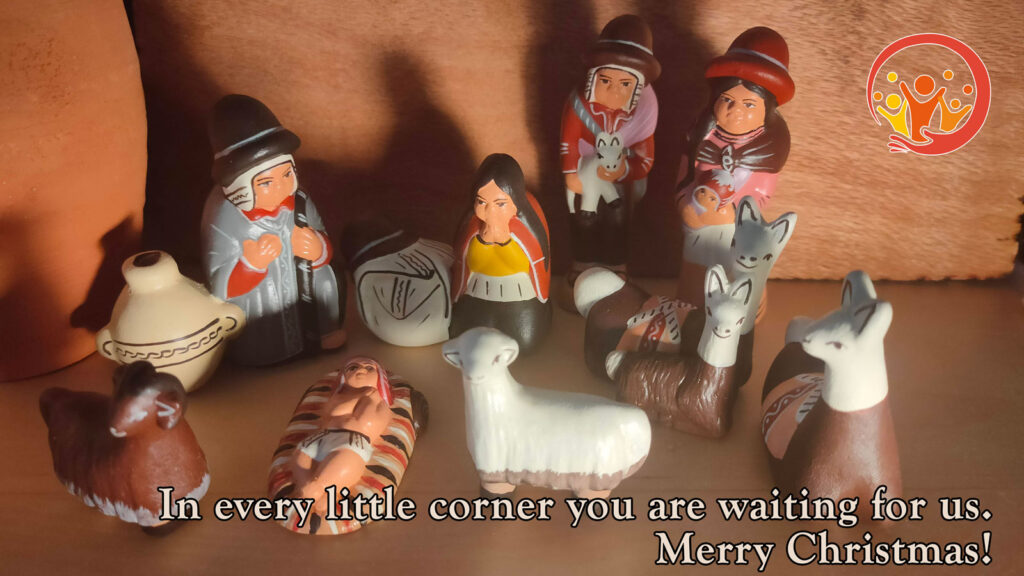
 Alberto de la Portilla
Alberto de la Portilla
MCCJ General Council: “Our best wishes of peace and hope for the feast of Christmas 2022”
«Do not be afraid. Listen, I bring you news of great joy to be shared by all the people. Today in the town of David a saviour has been born to you; he is Christ the Lord. (Lk 2. 10,11)
Dear confreres,
We wish to send all of you and your communities our best wishes of peace and hope for the approaching feast of Christmas.
We invite each of you to make the angel’s announcement to the shepherds resound once more in our lives and in those of our communities (“Peace on earth to people whom God loves” – Lk 2:14b), certain that the announcement, as it was for the shepherds, should also be such for us as to make us “contempo-raries of the event”. An event that makes us «find the crux of our redeemed existence, the celebration of living, the taste for the essential, the flavour of simple things, the fountain of peace, the joy of dialogue, the pleasure of collaboration, the desire for historic commitment, the wonder of true freedom and the ten-derness of prayer» (Don Tonino Bello).
The angel’s ′′do not be afraid′′ encourages us too, today not to back away from the challenges we encounter in our daily lives. Daily life is often afflicted by worries, discouragement and violence – caused by various factors – which corrode our trust in life and hope for the future. However, “the believer has something in his heart that urges him, moves him, mobilizes all his energies: it is the «” joy of the gospel”, its incomparable newness. Anyone who believes, even in relationships with those who are very far away, cannot give up wanting to communicate the formidable difference and excess, the “more” and the “beyond”, which are constitutive of the Gospel» (Card. Carlo Maria Martini). For this reason, the angel’s announcement of joy becomes pardon, a halt to pessimism, a truce in the sufferings and disap-pointments that harden our hearts and is transformed into a rampant force of trust in the future which is regenerated in the “patience of the present”, a patience capable of revitalizing the most authentic gaze on history and of interpreting events, grasping their true meaning or, at least, the possible horizon.
This patience drives us to decline the three essential dimensions of Christmas: listening and dia-logue, grasping the groans of the territories and the people who live in them, and committing ourselves to promote safe relationships and environments in the present and in the future; acceptance, as the result of closeness, service and care, touching the multiple wounds of suffering people (young people, mi-grants, the disabled, families, war victims); and prophecy, to initiate processes and anticipate, with sig-nificant and incisive proposals, the transformation of our life and that of the people we serve, as the result of the courage to give our lives for others and, above all, because we ourselves are in love with the life.
In a few days’ time, the mandate of the new Provincial Councils will begin in all the circum-scriptions. We send our sincere best wishes to all of them, entrusting their service to Mary, Mother of the Prince of Peace and Mother of all the peoples of the earth, to accompany them, supporting their ability to interpret the trust they have received with availability and gratuity by the confreres of the circumscriptions.
We wish all of you and all the members of the entire Comboni Family, a Happy Christmas and a prosperous 2023, so that the rediscovery may continue of our Family as the “cradle of life and faith”, a place of welcome, and a source of hope and of peace for all humanity.
Finally, we urge everyone to fervently implore the Prince of Peace to bring consolation to all wounded hearts, as well as to the nations tried by wars and crises of all kinds, so that every man and woman may enjoy a dignified and peaceful life.
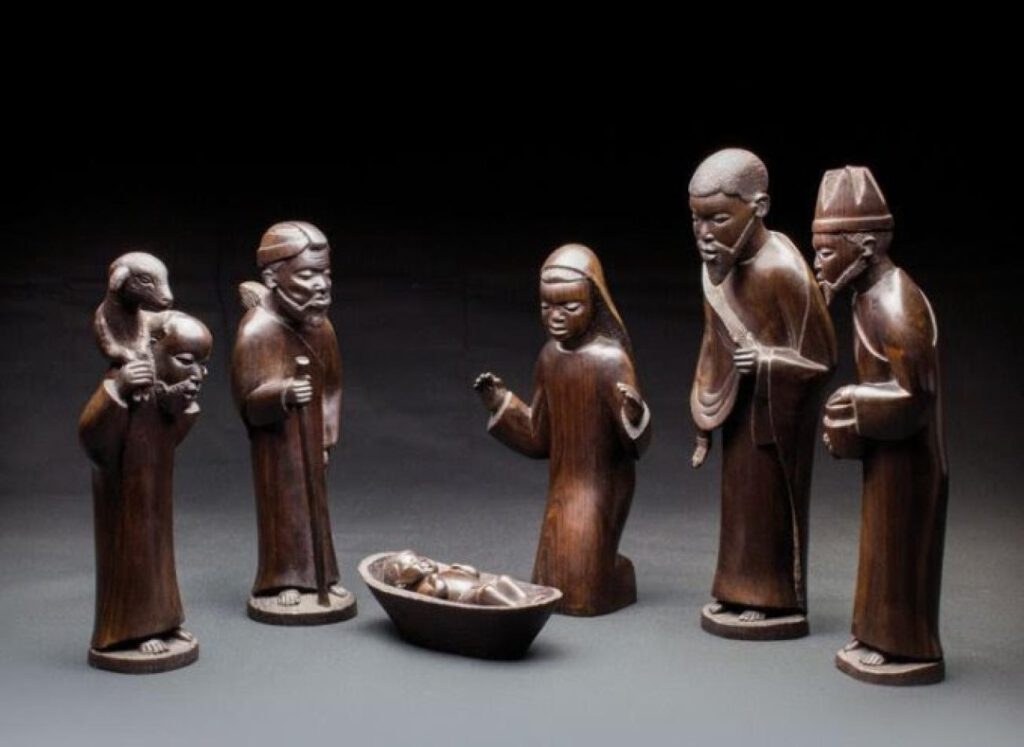
Happy Christmas everyone!
The General Council
Our last quarter activity in the CLMs of Ecuador
At the end of November 2022, we received the visit of our National Advisor, Fr. Enzo Balasso, MCCJ, who was in Guayaquil to promote the Calendar 2023 of the Comboni Family in some parishes of the Archdiocese, in the month of August 2023, which is dedicated to the Laity and there is a general invitation to participate in the CLM.
It was a very pleasant opportunity for our lay community to accompany Fr. Enzo in these visits of parish groups from the periphery and priests from the north of Guayaquil, Fr. San Lucas Evangelista, from Mucho Lote; Fr. Jesús El Buen Pastor, from Vergeles; and, Fr. Nuestra Señora del Rosario de Chiquinquirá, from Vergeles, in which we took the opportunity to give small talks and reminders of the various missionary animations carried out in previous years.
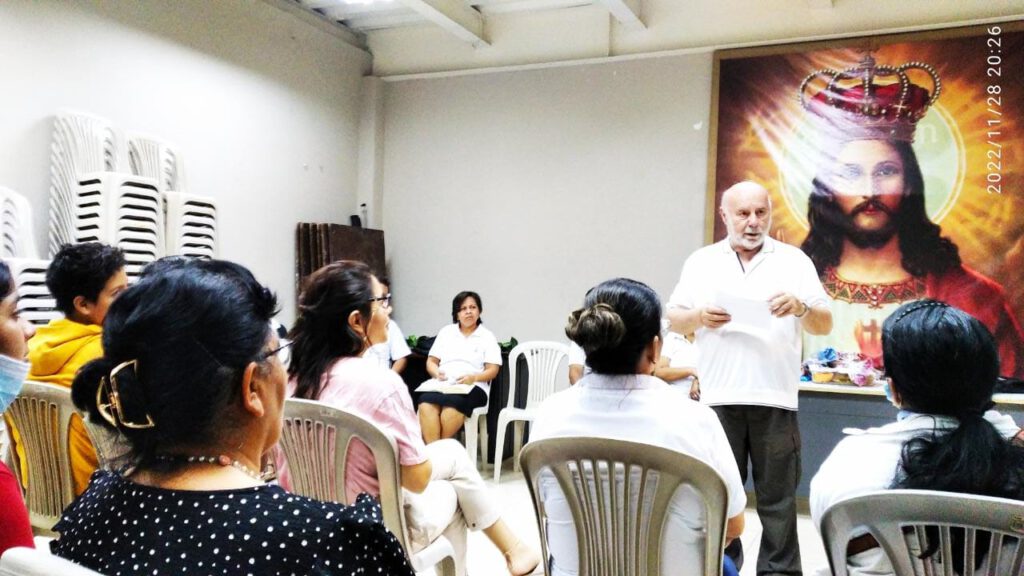
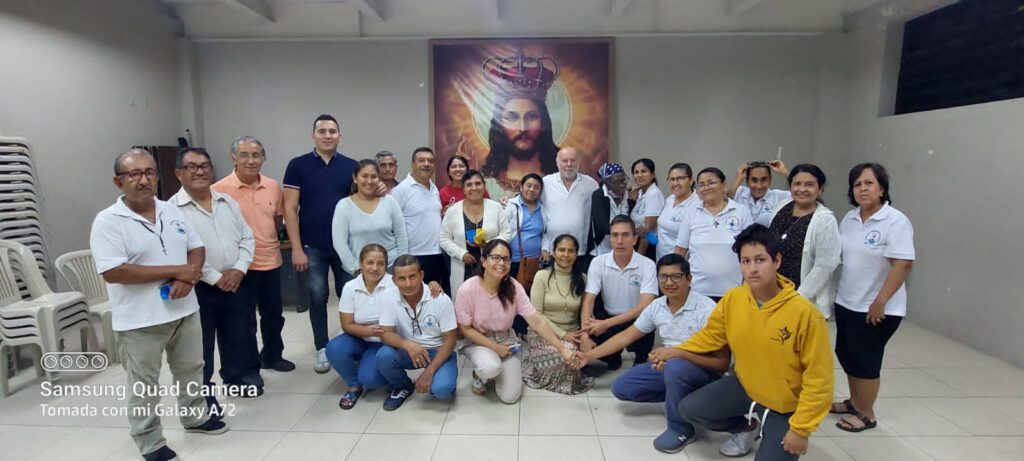
In the same way, since this year we have maintained a space for living together as Comboni Family among the priests, confreres and lay people who are in Guayaquil, through a monthly Mass and sharing, which is held on the last Tuesday of each month; and this time we did it with our National Advisor.
Among the pastoral activities that the CLM develop is the accompaniment and participation in the parish Immaculate Conception of Guayaquil, as Extraordinary Ministers of Holy Communion, which during this year we went to the preparation and formation for the renewal of the ministry at the Archdiocesan level, being so on Saturday, December 10, 2022, the ceremony was held in the Cathedral of Guayaquil celebrated by Bishop Gustavo Rosales, Auxiliary Bishop of Guayaquil.
We have had space for vocational promotion and awareness of our CLM movement, such as, on December 17, 2022, the participation with the group “Roots of Hope” in the Christmas sharing for children and families of the “Valdivia” sector; and, on December 18, 2022, we will celebrate the mass of thanksgiving for the CLM International Day in the Verbo Divino Parish, currently Comboni parish, both areas known as periphery of southern Guayaquil where families of low economic resources live.
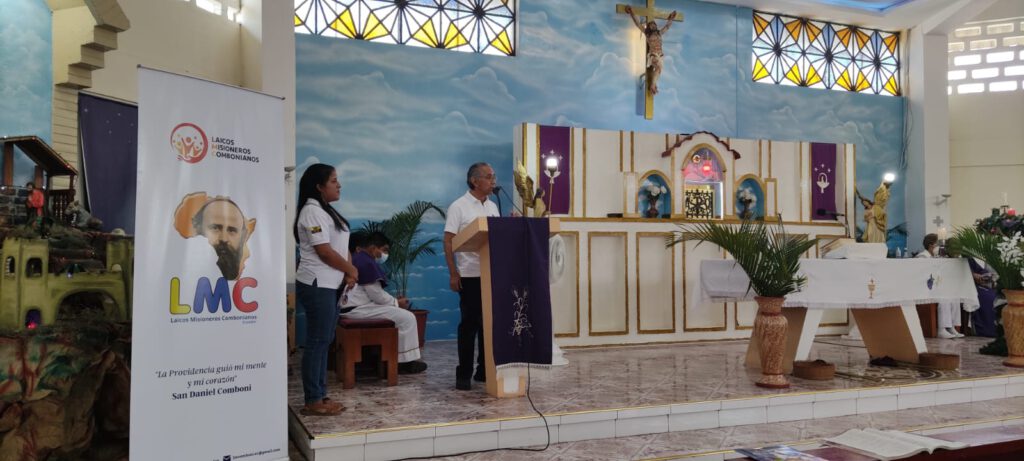
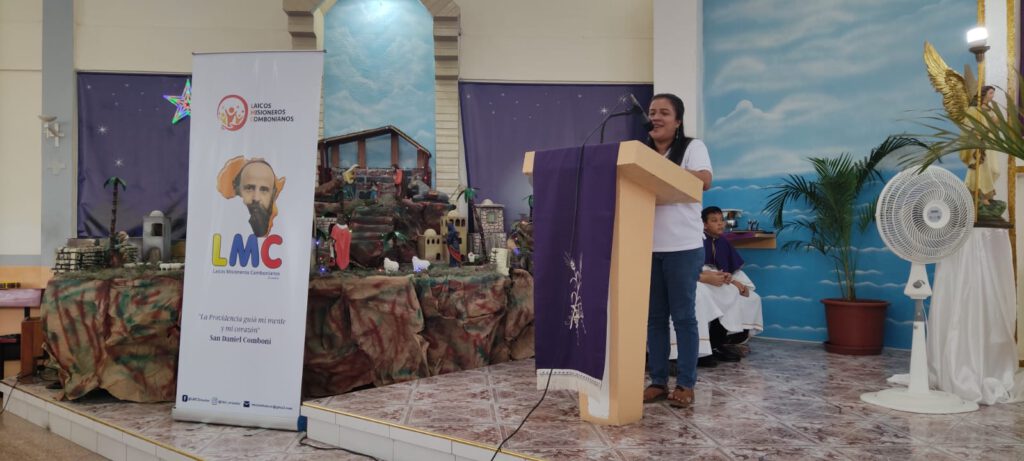
In addition, on Friday, December 30, we will be sharing with the different missionary and pastoral groups that meet at the Afro-Ecuadorian Cultural Center of Guayaquil, in order to meet as a family and with other lay people who share our Comboni charism.
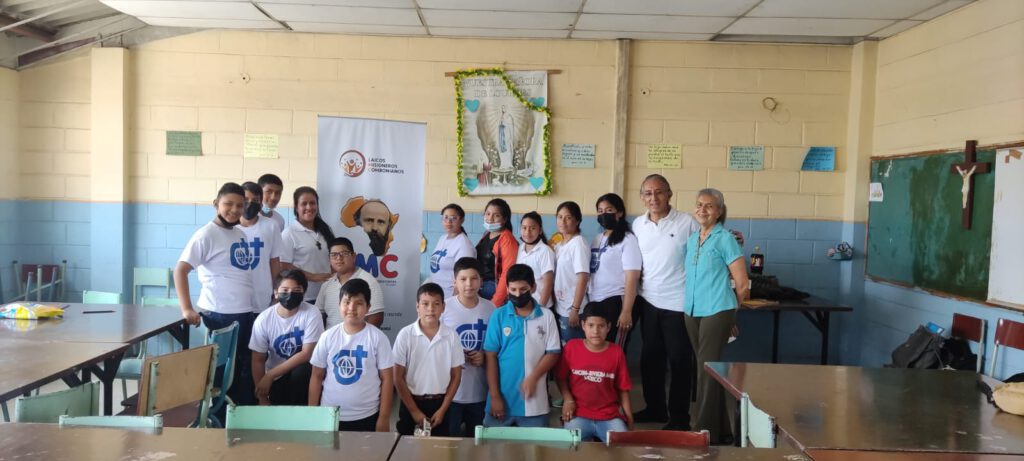
Happy Holidays to all!
Abg. Susana Ortega Delgado, CLM
Returning to the CLM path in Mexico…
In Mexico, after participating in our continental meeting in Peru, we met on October 15 in an extraordinary meeting called by our MCCJ advisor, Fr. Filomeno Ceja, to get to know each other better, where the elections of the national leaders of our group took place: Beatriz Maldonado, coordinator; Hortensia Licona, Economy; Silvia Tapia, missionary animation; Adán Aguilar, formator and Rocío Quintero, Justice and Peace. We set ourselves the task of establishing the concrete lines of action so that each commission could take up again the path based on our national reality, being aware that it is necessary to update ourselves and rediscover the concrete field of action to be followed.
We have carried out a diagnostic questionnaire that will facilitate the realization of our work plan for 2023, and in dialogue with the coordinators we are analyzing what we will be able to do in the following year. The organizational chart has already been updated and we have the task of reading our directory in order to review it and modify what needs to be renewed. Also, to the extent of our possibilities, we are making our overdue contributions in order to fulfill our contribution to the international common fund and thanks to the collaboration of two benefactors we will be able to send something for the communities of Kenya and Mozambique, a flyer has been made to promote vocations in the Comboni family within our missionary animations.
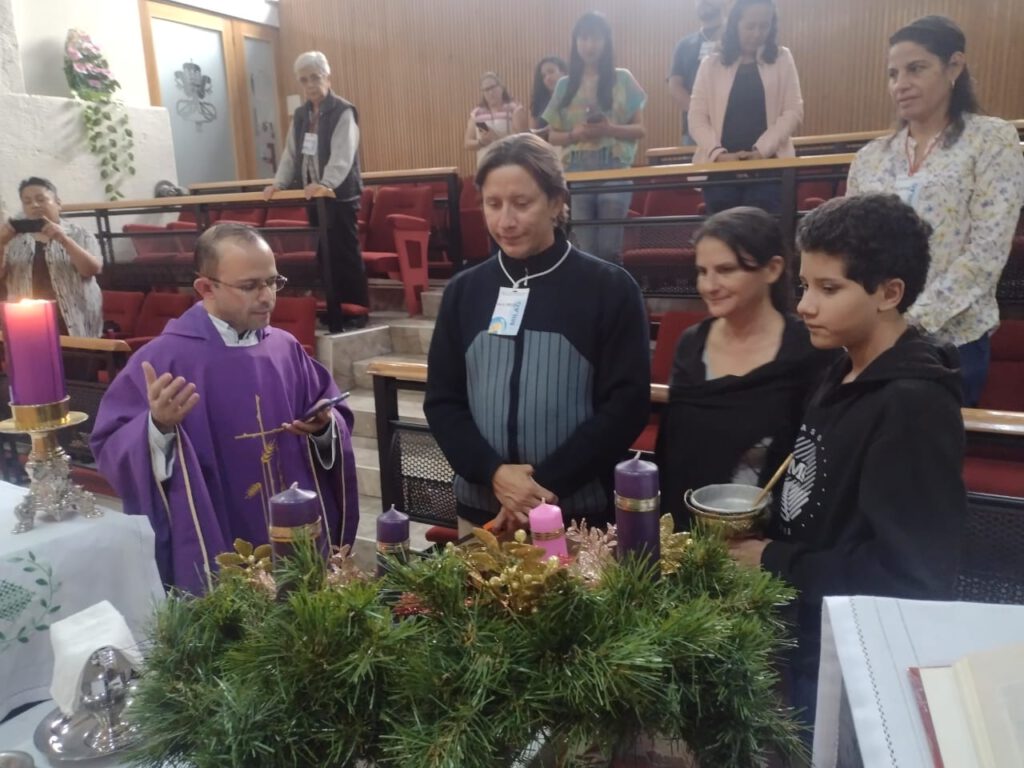
We were invited to participate in the week of UIC Theology, we were offered to participate in this meeting, the central theme was “Co-responsibility and participation of the Laity in the Evangelizing Life and Mission of the Church” it was very enriching to be able to live it. These are spaces in which we can receive training that help us in our Christian maturity, updating our ways of serving in our church.
Fr. Filomeno took on the task of visiting the local groups and getting to know the reality of each one. For the moment we need to visit those in Monterrey who have shared with us that they are supporting the missionary animations; Manuelita, Rosy and Minerva also accompanied him to visit the parish of Metlatonoc to make an analysis of the reality that will allow us to make a decision about the needs that we find and what we can contribute, it is a town with a richness in its traditions and the way in which the faith has been preserved, since it was seen and commented the need for a committed lay presence in the parish, being necessary to have a decent place to reopen a mission experience as CLM in coordination with the MCCJ and the parish.
By the grace of God I had the opportunity to close this liturgical year participating in an assembly of the Pontifical Missionary Works of the Mexican Episcopate OMPE, in the XIX national meeting of Lay Missionary Institutes Ad Gentes “MILAG”, we have introduced ourselves and we have put in common the way we accompany people who want to be part of our group briefly describing our formation process; thanks to the international formation guide that we have it was easy to explain it.
We were introduced to the missionary project “Laity in Departure” which will be enriched and implemented after this meeting, there is a very important figure which is the “Diocesan Animator of Lay Missions Ad gentes” that we will propose to the dioceses and that will be appointed to work in communion with MILAG and the OMPE. We have proposed candidates who could exercise this service together with the diocesan director of missions and his team.
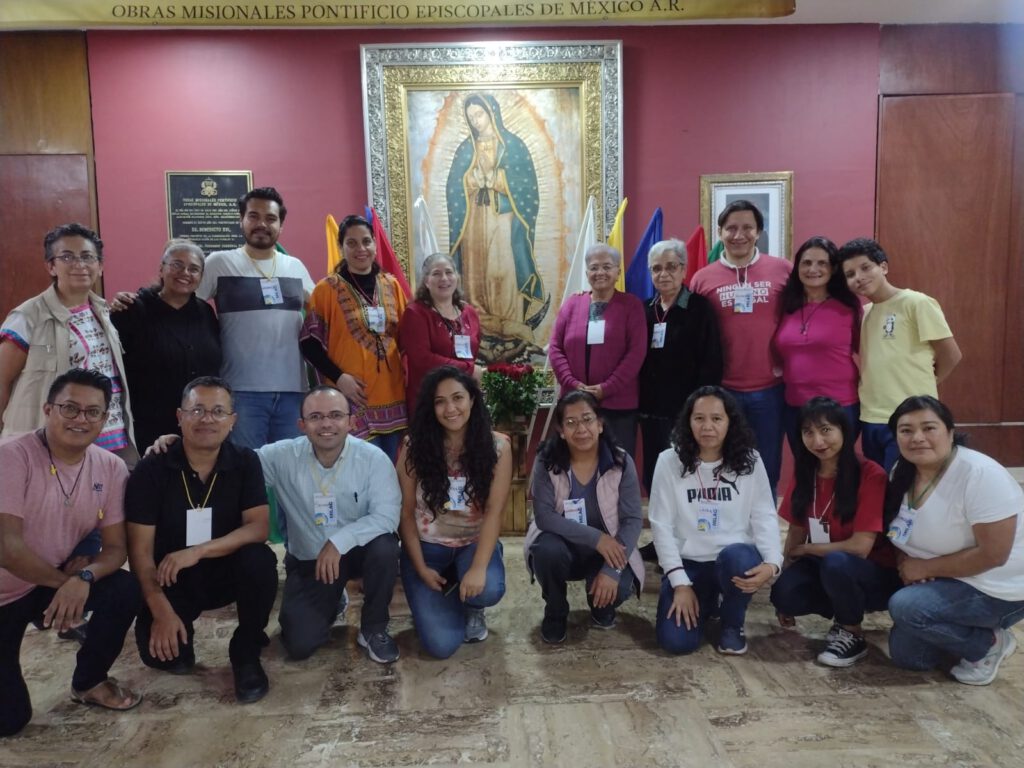
Before the beginning of this liturgical year, soon to begin, we have programmed “Celebrate the CLM day” virtually, this Third Sunday of Advent, praying the missionary rosary, each local group will lead a mystery, it will be a moment of prayer that will help us to integrate as a group, in the joy of getting together to celebrate that we share our being CLM and we are in tune with our missionary work. Meditating on the life of Jesus Christ under the intercession of our mother the Virgin Mary. United in prayer for the good of the mission, we will continue to communicate.
Beatriz Maldonado, CLM Mexico
Second part of the African Assembly in Cotonou
After intensive week of deliberations, presentations and group work trying to find solutions and possible suggestions to move the CLM group forward, members of the 4th African general assembly brainstormed on how to make the CLM in Africa more autonomous on three levels namely economic, organization and formation autonomy.
For CLM members in Africa to achieve economic autonomy, each group should strive for other income generating projects, scale up members contributions, use a proper accountability procedure to help the group in clean and viable ways to boost the confidence of CLM members and donors to sponsor them. They should start ways on how to gradually stop dependence on the MCCJ.
Members of the CLM should take the management of the groups and be recognized as those who can depend on their own, as one day MCCJ will leave the group. They were encouraged that the commissioned CLMs should be trained as trainers to release the MCCJ who are the currently trainer for the groups.
The 4th assembly were enthusiastic on the recognition by legal ecclesiastical and at civic level. They stressed the need for recognition as this will make them carry their duties freely and openly without rejection from any quarters. Also this may give them some bargaining power in negotiation at the civic level in terms of job. They stressed the need to be recognised by the canon law on private association of faithful.
A tour around Cotonou
After a busy week of nonstop discussion members took a day off to relax and see what nature offers to beauty of the country of Benin specifically the city of Cotonou. The journey started by visit to one of the community of St Daniel Comboni. it’s a community of 3 Comboni Brothers. Running a conference facility for hire. The guest can decide to board, or hire. It has a kitchen for full board. The facility is mostly busy on week ends. it has become the conference centre for the city of Cotonou and its environs.
We then left to visit one of the oldest seminaries in west Africa. It was the only seminary For Ivory Coast, Benin Togo and Ghana . St Gall Major Seminary offers the serene environment of silence that gives it the atmosphere for learning. We visited the chapel and saw the tombs of great missionaries. The architectural designs are stunning depicting the ancient designs of those days. It was built in 1914.
Fr. Léopold, who was our guide took us to one of the historical sites in Benin which is a must see for any visitor. The basilica “immaculate conception ” built in 1909. This was the first church in Benin. The tombs of two great missionaries who came from France and Portugal are inside the basilica. This was the first basilica built in west Africa. What makes this church unique is just opposite the church is a tradition temple locally known as VUDU. They believe in the gods of their ancestors and has refused to abandon the practice with Christianity. One of the temple we visited is the “The Temple De Python”.
Our guide tells us that it was their ancestors who donated the land which the church stands. The church and the temple of the python co-existed peacefully from then without interference with each other religion. In the Vudu they believe that they are helped by god python. Within the compound of the temple of python, we saw iroko “Tree” which has now dried up and is said to be 4 centuries (400 years) and a big baobab tree said to be 6 centuries old (600 years). The guide gave us a brief history of the place. The first instance we met the serpent face to face after assurance that its non venom. The guide invited us to hold their god the python. He placed the python on my neck, the snake it starts to scroll towards my chin. Well your guess is as accurate as mine what was happening in my mind. We were ushered in to a small room but after being ordered to remove the shoes. Inside the room there are 50 pythons, you could easily step on or mistake for a log as the room was poorly lit. Later on the day we had sumptuous local meal at one of the local restaurant.
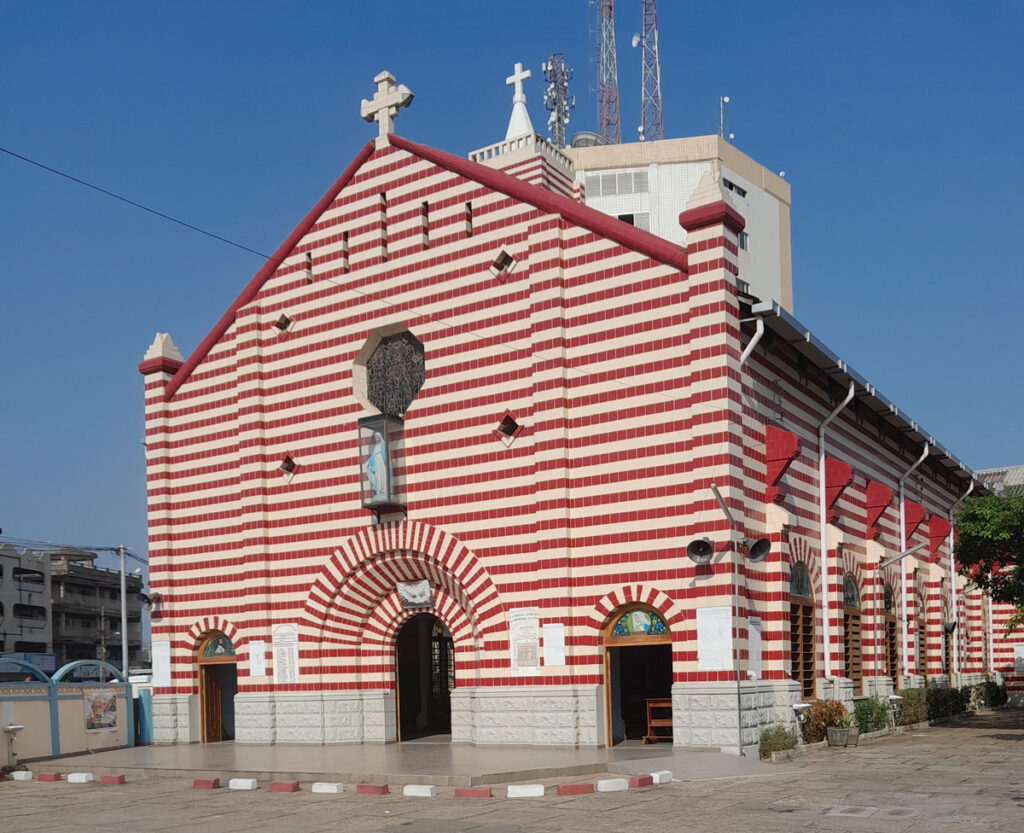
Afterwards, we set off to see the cathedral of Cotonou “Mother of Mary”. Its painting of red and white colours makes it a beautiful architecture to admire. A big place to worship and behind the church cathedral is the radio station belonging to the Catholic church.
Later on we went to the football stadium but we could not get into the stadium as renovations were on going. We passed by the state house of Benin but stopped at the national monument of Benin. The design of the structure of the statue measuring nearly 50 meters tall is erected in the middle of a square where people rest as they take pictures with the Amazon. Historians has it that, it’s a symbol representing women who fought the French when the French soldiers wanted to colonize their country. The tall lady “Amazon” holding a knife and a riffle is a no dare to joke with.

After touring the hot city of Cotonou, we set off to the beach, some of us have only read about the Atlantic ocean. We came face to face with the big tidings of the waves, roaring sounds of the water as it splashes on the shore making spectacular retreat that leaves us wet from our knees. What a wonderful way to cool off as we watch the sun set. Showing a large ball of orange as it disappears into the waters of the ocean at the horizon. On our way back home we visited the last community of the Comboni’s, St Francis Of Assisi catholic church. Its proximity to the ocean and airports makes it a vantage point to see aeroplanes take off and cool evening breeze to relax your mind and body.
On Saturday we went for serious deliberations, resolutions and later on the final party as this was our final day of the assembly. We believe that with what we have agreed as the African assembly each member of the assembly has something to take home and implement so that as we shall come for the next assembly in 2025 we shall witness huge improvement in our CLM groups. Members also had a chance to elect a new team of coordinators at the continental level they are Hani Chafik, Justin Nougnui and Martin Juma.
Greetings, Martin Juma, CLM Kenya




